This advice applies to England, Wales and Scotland

Grievance letters about discrimination
A grievance is a letter of complaint to your employer. When you give it to your employer it should start a formal procedure, in which your employer:
- asks you to a meeting to discuss your complaint (the grievance meeting)
- investigates your complaint
- gives you a written decision
- gives you a chance to appeal if you disagree with their decision
You can also use it to gather evidence that will help you understand your employer?s defence ? this might be useful if you?re thinking of going to a tribunal.
You could ask your employer if you can record the meeting ? they might only agree if you give them a copy of the recording.
If you?re self-employed or an agency worker, or if you no longer work for your employer, they don?t have to follow this procedure. You should still put your complaint in writing though, and many employers will deal with it in a similar way to a grievance.
Grievance procedures
Your employer should have their own ?Grievance Procedure? which will explain how you should make your complaint. You might find this in your contract, employee handbook or on your intranet.
Some employers have specific grievance procedures for tackling discrimination, equality, bullying and harassment issues as well as a grievance procedure so you should ask your employer for a copy of that procedure as well.
There is also an Acas Code of Practice on discipline and grievances which explains what you and your employer should do to deal with problems at work. There is more detail in the accompanying Guide which provides additional valuable guidance.
How to write your grievance letter
There are different approaches you can take when writing a grievance letter. You can approach it in an informal way which tries to protect your relationship with your employer (avoiding threatening legal action) or you can write something more formal, referring to legal rights.
There is no ?right? way. Both approaches will ensure that you have done enough to put your complaint in writing. However one may be more likely to achieve what you want, depending on your situation.
When deciding on the tone of your letter you should think about:
- Whether you are still employed (or want to remain employed). It can be harder to keep a good working relationship if you threaten to take legal action (although you can?t be subjected to any victimisation for raising a grievance). Larger employers will be more used to getting ?legal? letters and feel less defensive about it.
- If you want compensation you will probably need to outline your legal claims and show your employer that you are willing to go to tribunal in order to have a better chance of settlement.
- Who will be reading the letter and how will they react to what you?re writing? What will be the best way of getting them to do what you want?
Whatever tone you take:
- Your letter should always be polite ? don?t make personal attacks on anyone
- You can state your case firmly ? being clear about what has happened and your rights and the employers responsibilities doesn?t automatically lead to a negative response.
Informal grievance template
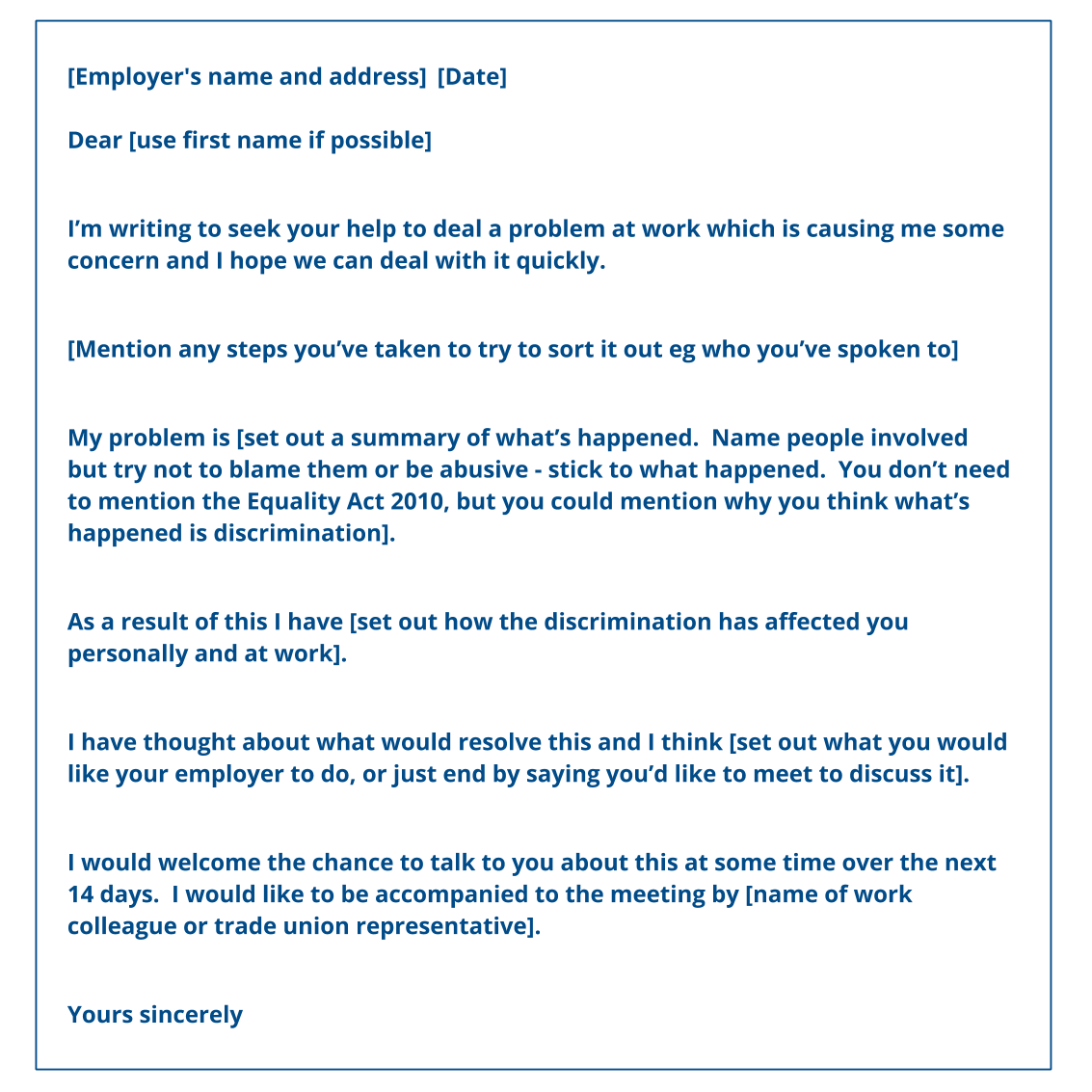
Examples of informal grievance letters
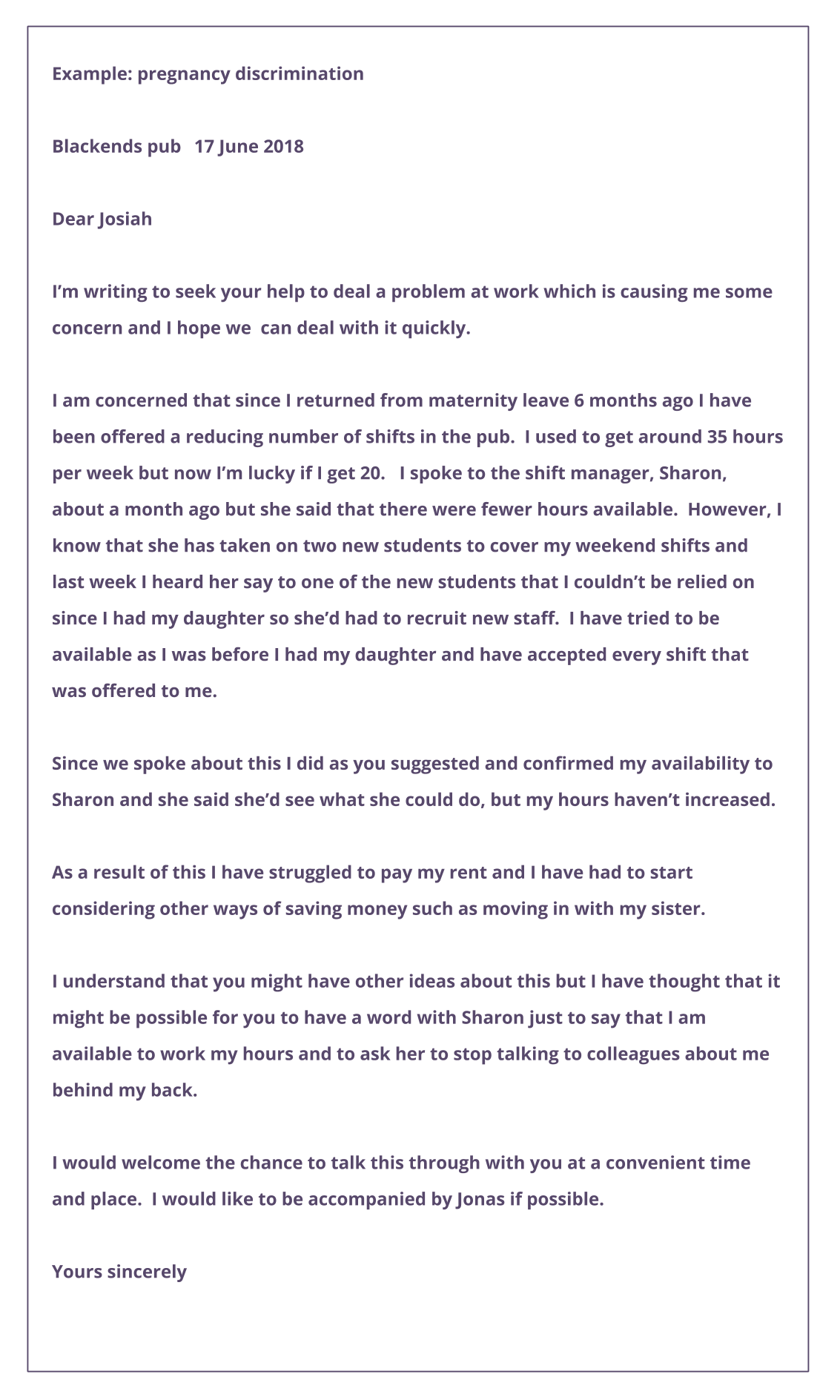
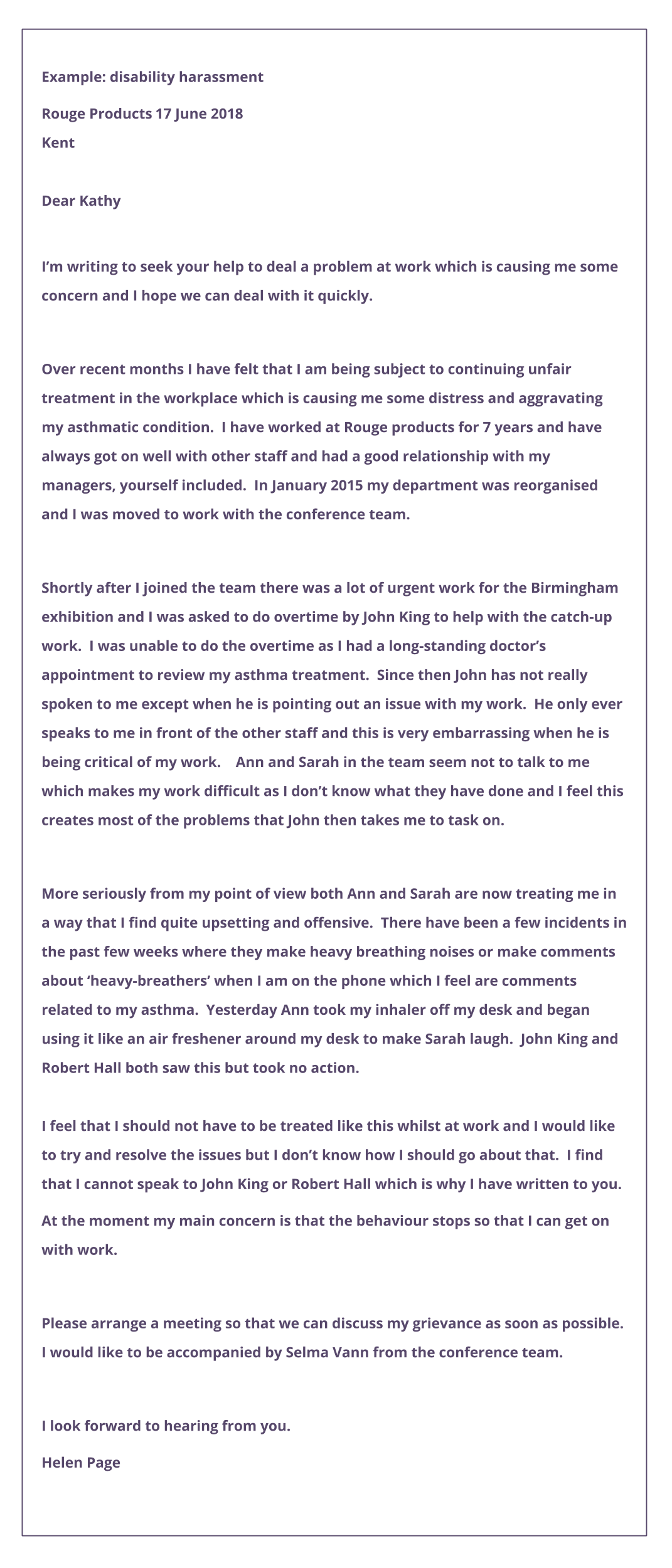
Formal grievance letter template
This style of letter can be appropriate when
- You need to refer to the law to get your employer to deal with the problem
- Your problem needs dealing with quickly and you think your employer is more likely to respond to this type of letter in a positive way
- You are asking your employer for compensation and need to show you have a good legal case
Formal grievance template
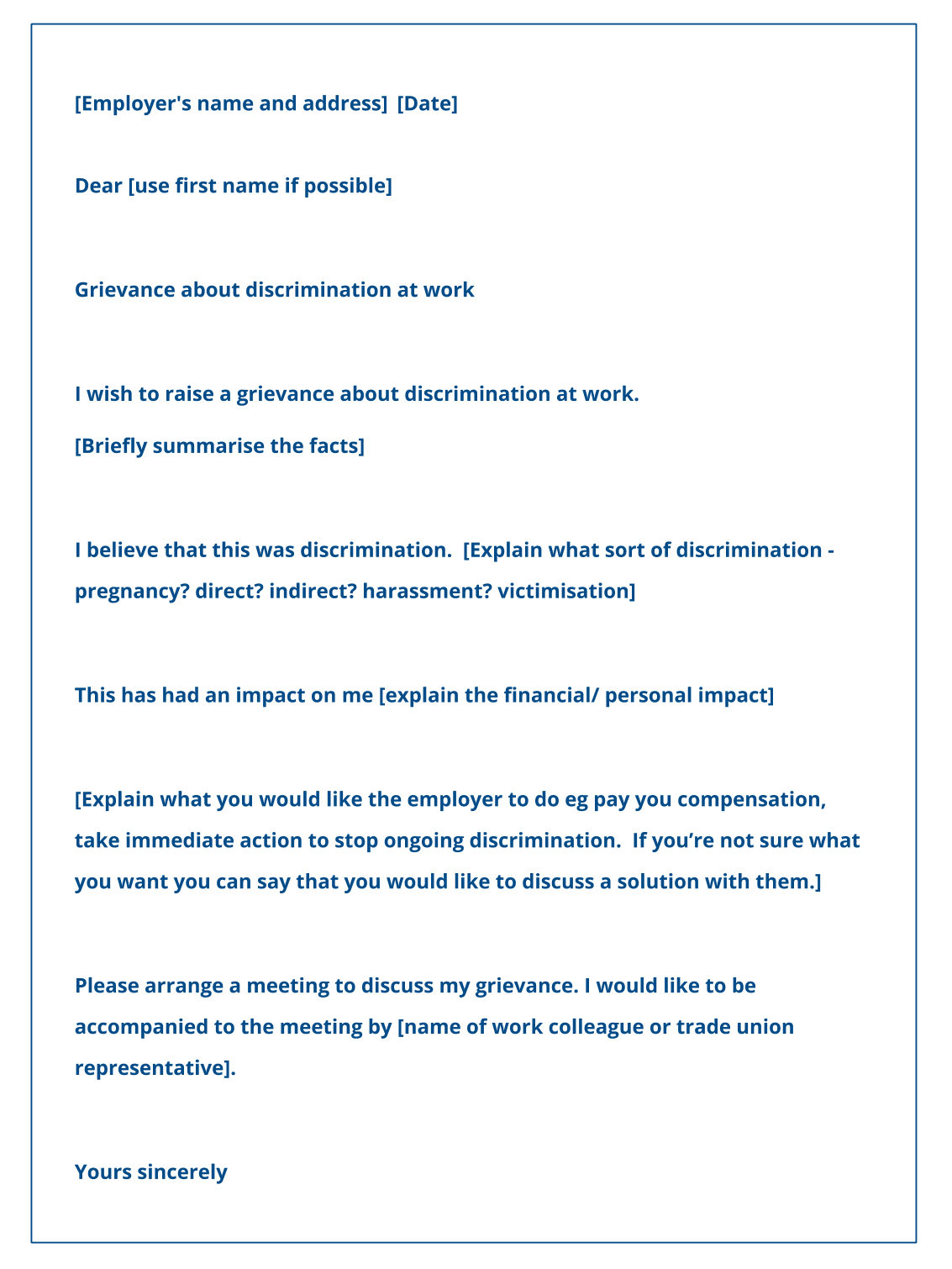
Examples of formal grievance letters
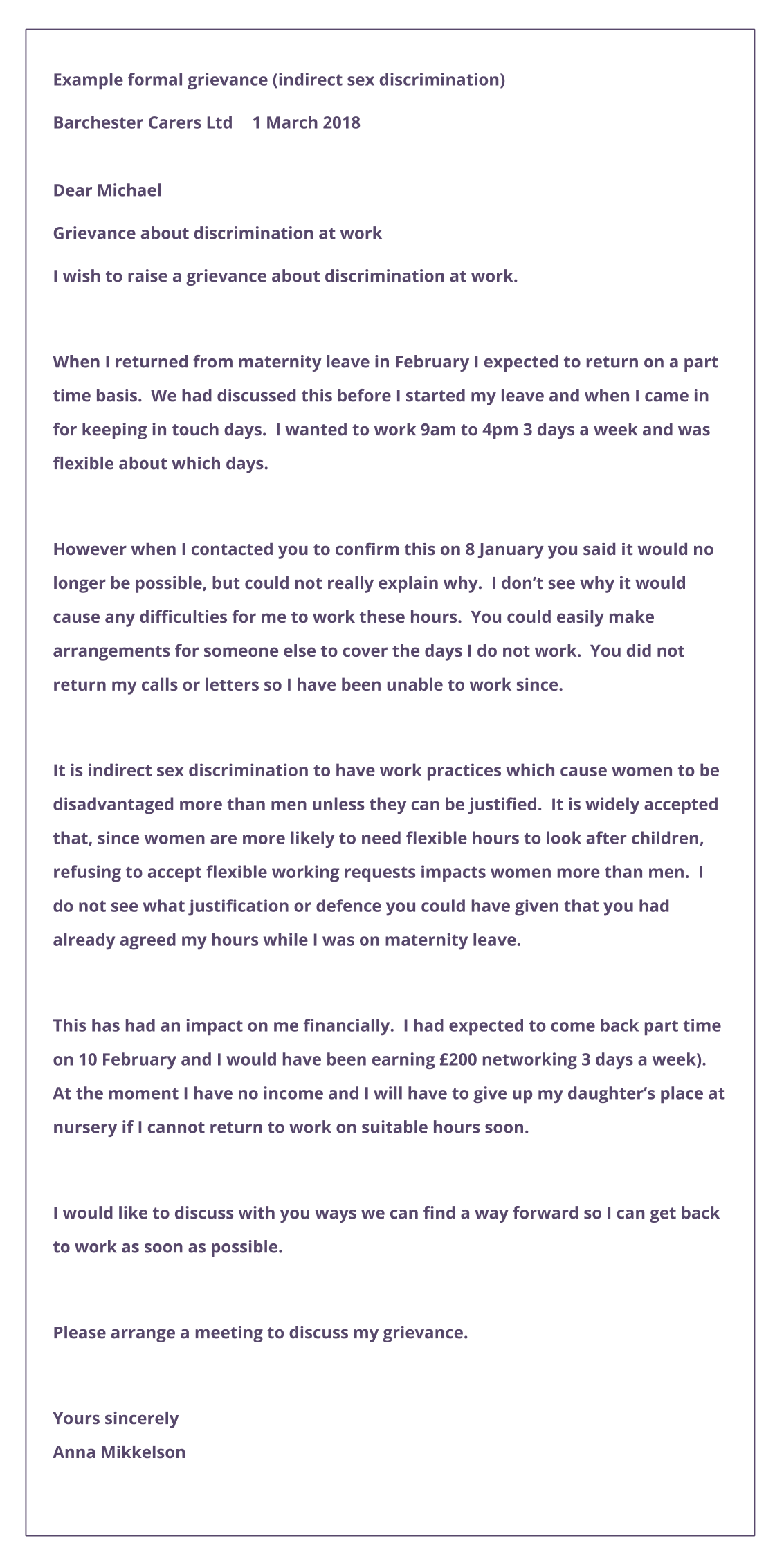
Letter chasing employer for a response to a grievance
If your employer doesn?t respond to your letter or informal conversation.
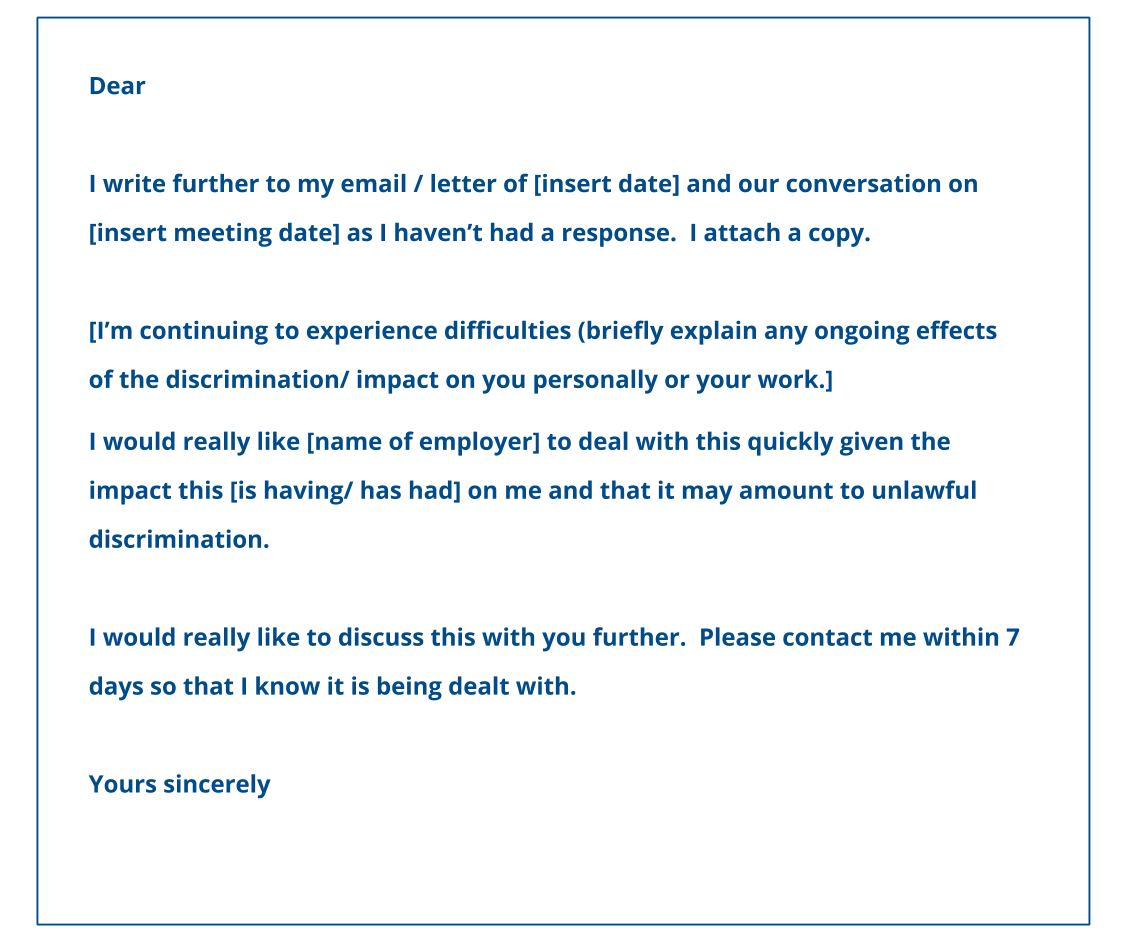
Grievance appeal letters
If you are not happy with your employer?s response to your grievance you should have a right to appeal. Check your employer?s grievance procedure for the deadline for appealing (it may only be a few days) and who you have to write to. Even if your employer doesn?t say that you have a right to appeal you can still try to ? write to someone more senior in the company than the person who dealt with your appeal if possible.
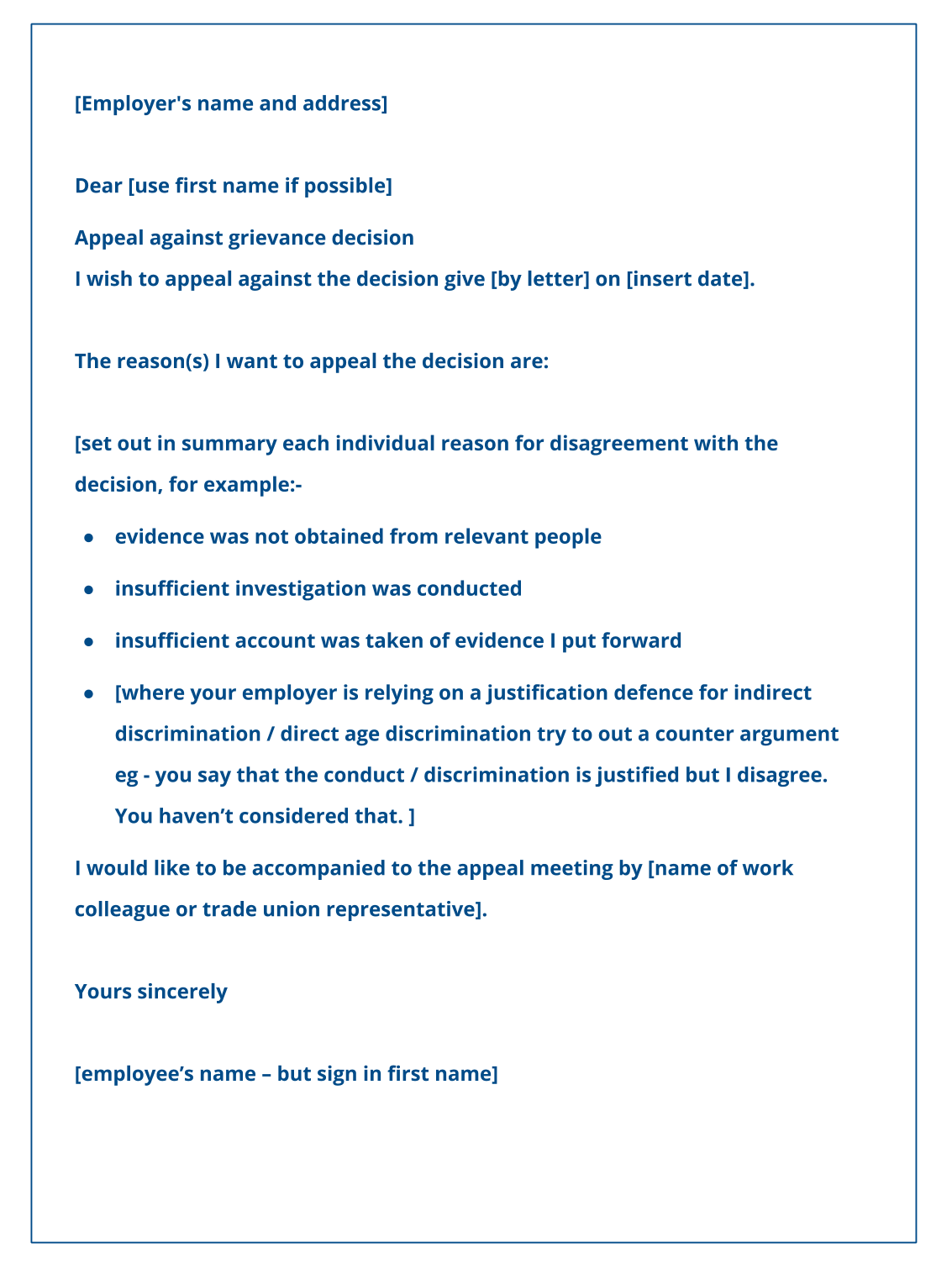

Please tell us what you think of this page.


